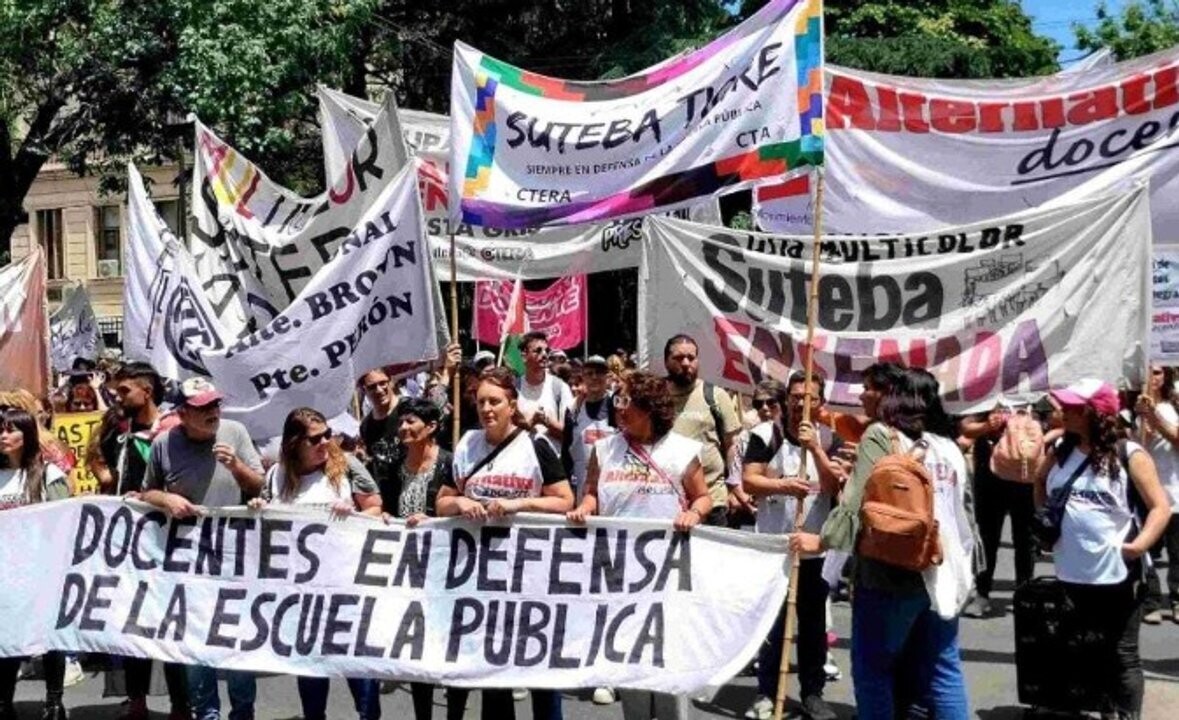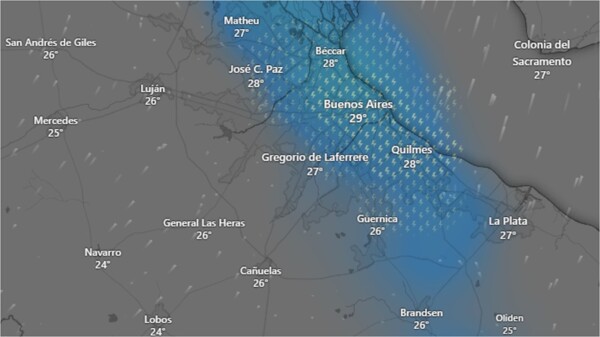
Teachers in the province of Buenos Aires are planning to hold an event on Monday, February 24, at the Pizzurno Palace (National Education Secretariat) under the slogan "against the chainsaw Milei, the governors, and the IMF," with the aim of demanding a salary increase for all educators. The Buenos Aires teachers, gathered in the Multicolor organization, demand to receive a salary equivalent to the family basket and to put an end to the closure of courses, urging other teachers' unions to join both this event and the strike scheduled for March 5.
In a statement, they expressed: "We gather to achieve a salary equal to the family basket, to speak out against anti-educational reforms, and to demand that courses do not close. CTERA should also join and call for a national struggle plan in defense of Public Education." This call comes after teacher unions, affiliated with the General Confederation of Labor (CGT), announced two strikes, one for February 27 and another for March 5, to arrange a meeting with the National Government to improve salary proposals.
The Secretary General of the Confederation of Educators of Argentina (CEA), Fabián Feldman, pointed out that the last salary increase "was granted by decree" in mid-last year and since then they have not received responses to achieve a salary improvement. The concentration is scheduled to take place tomorrow at the National Education Secretariat (Pasaje Pizzurno No. 935, between Paraguay and Marcelo T. De Alvear) at 10 a.m., where the demand for a salary increase, which has been stagnant since August of last year, will be made visible. "Money for public education, salary and work, not for the IMF," they concluded.














